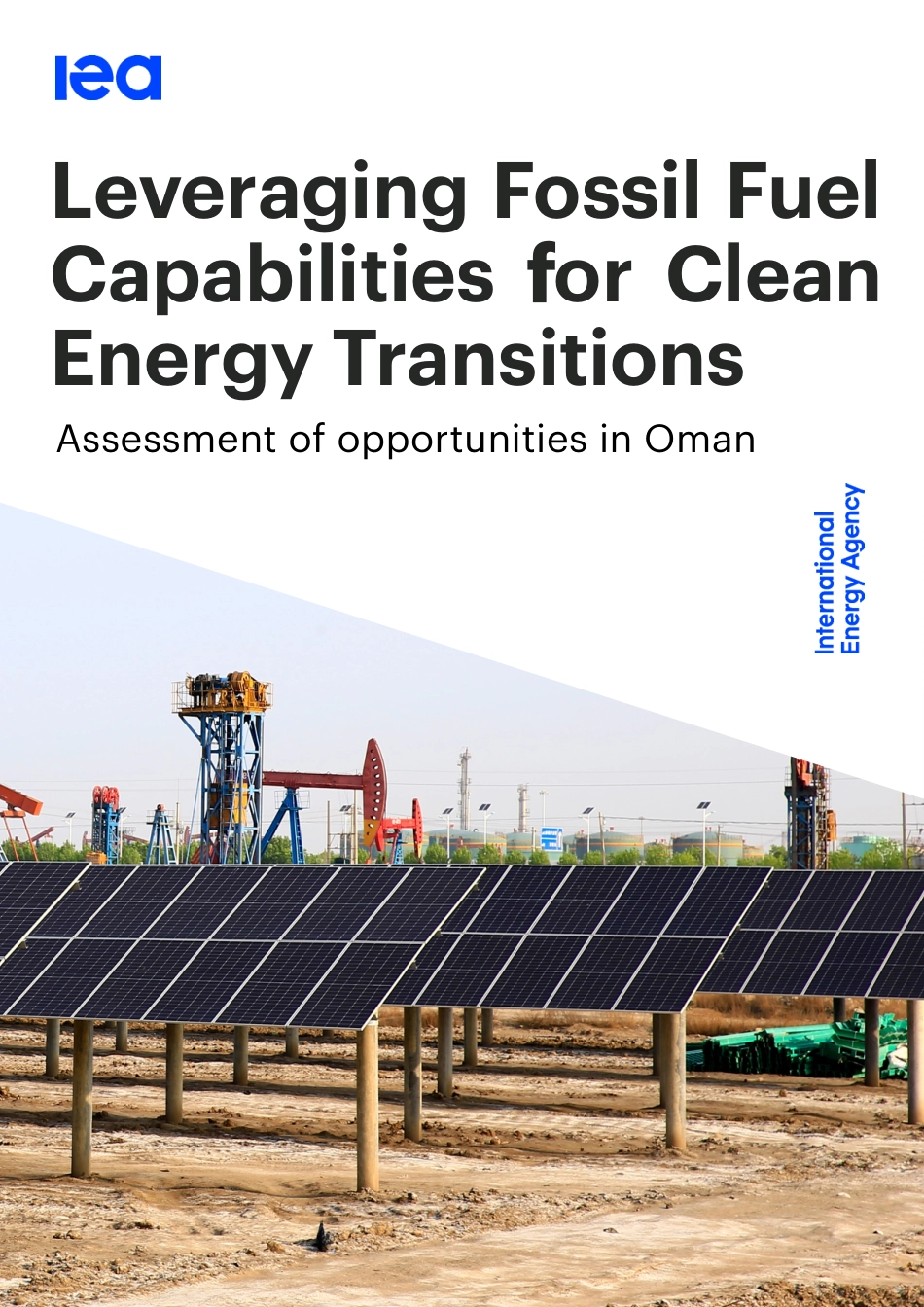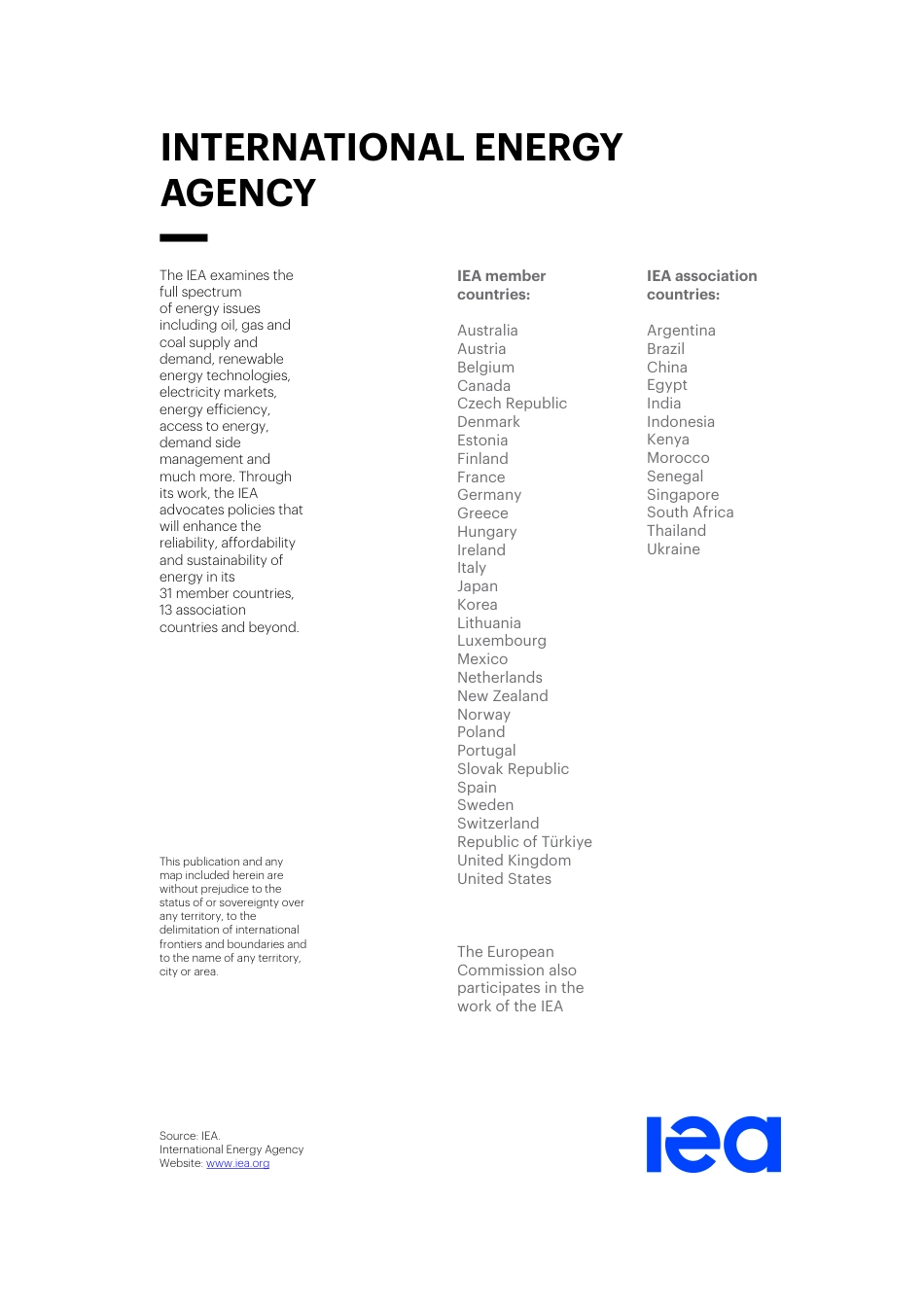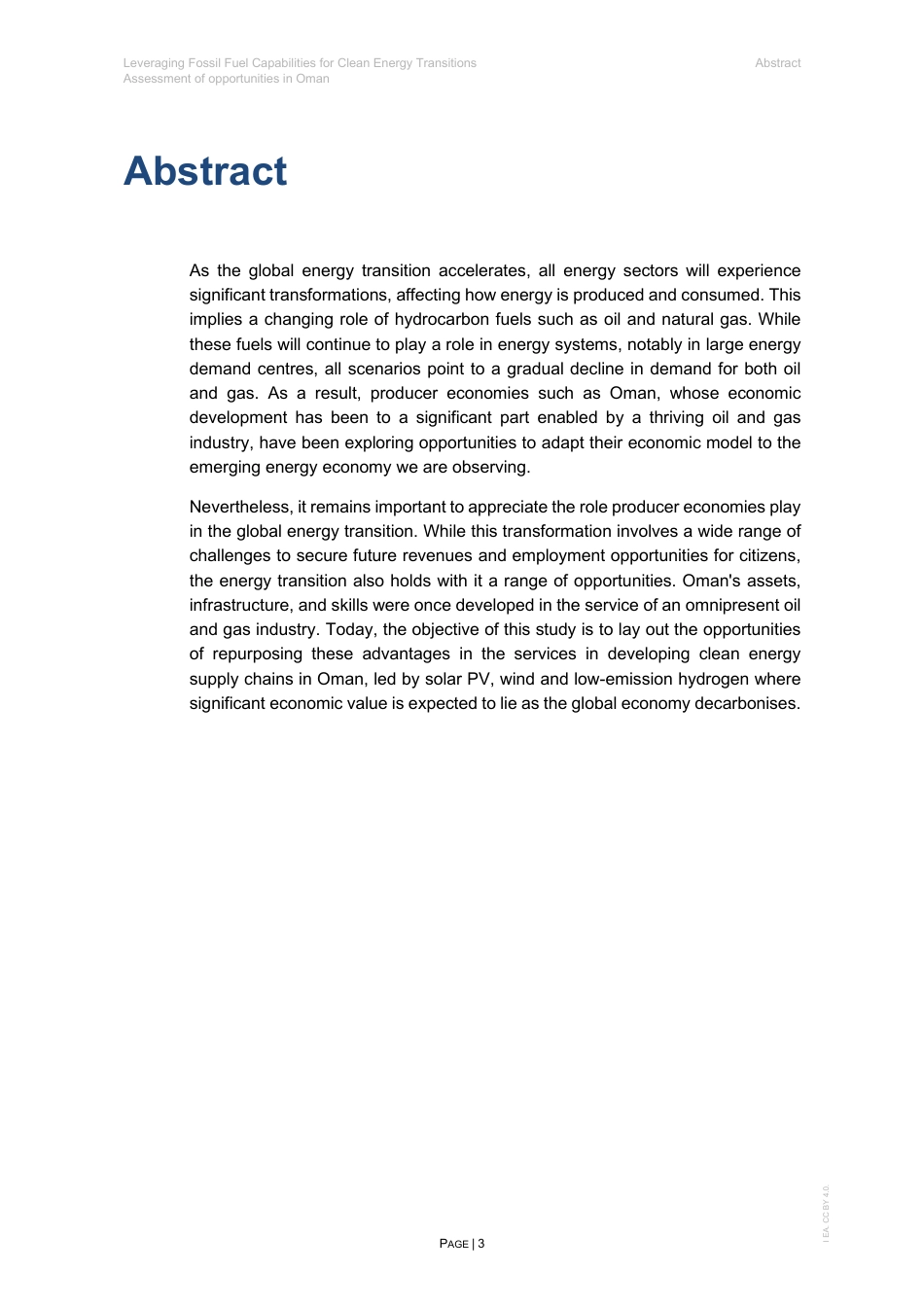Leveraging Fossil Fuel Capabilities for Clean Energy TransitionsAssessment of opportunities in OmanThe IEA examines the full spectrum of energy issues including oil, gas and coal supply and demand, renewable energy technologies, electricity markets, energy efficiency, access to energy, demand side management and much more. Through its work, the IEA advocates policies that will enhance the reliability, affordability and sustainability of energy in its 31 member countries, 13 association countries and beyond.This publication and any map included herein are without prejudice to the status of or sovereignty over any territory, to the delimitation of international frontiers and boundaries and to the name of any territory, city or area.Source: IEA. International Energy Agency Website: www.iea.orgIEA member countries: AustraliaAustriaBelgiumCanadaCzech RepublicDenmarkEstoniaFinlandFranceGermanyGreeceHungaryIrelandItalyJapanKoreaLithuaniaLuxembourgMexicoNetherlandsNew ZealandNorwayPolandPortugalSlovak RepublicSpainSwedenSwitzerlandRepublic of TürkiyeUnited KingdomUnited StatesThe European Commission also participates in the work of the IEAIEA association countries:Argentina BrazilChinaEgyptIndiaIndonesiaKenyaMoroccoSenegalSingapore South Africa Thailand UkraineINTERNATIONAL ENERGYAGENCYLeveraging Fossil Fuel Capabilities for Clean Energy Transitions Abstract Assessment of opportunities in Oman PAGE | 3 I EA. CC BY 4.0. Abstract As the global energy transition accelerates, all energy sectors will experience significant transformations, affecting how energy is produced and consumed. This implies a changing role of hydrocarbon fuels such as oil and natural gas. While these fuels will continue to play a role in energy systems, notably in large energy demand centre...



